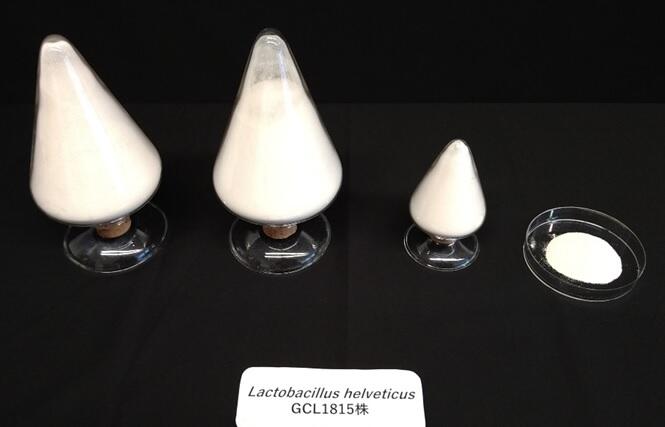Ezaki Glico Co., Ltd. has discovered the lactic acid bacteria strain GCL1815 from among approximately 10,000 bacterial strains in their collection. This strain possesses functions for activating dendritic cells, inducing IgA production, and promoting IL-12 production. They have successfully demonstrated that oral consumption of this bacteria suppresses subjective cold symptoms. Researcher Yasusuke Uesugi at the Product Technology Development Laboratory, stated, "About 200 participants cooperated in this study, and we observed a reduction in the number of people experiencing cold symptoms such as fatigue, tiredness, and nasal congestion. Since we used heat-sterilized bacteria, we believe that some structural component of the lactic acid bacteria might play a key role. We plan to further investigate the mechanism of action and verify additional effects." The GCL1815 strain was reportedly collected in 2009 from raw milk in Saga Prefecture, where the company was founded. These findings have been published in the Journal of Bioscience, Biotechnology, and Biochemistry and in Nutrients.

Lactic acid bacteria are thought to enhance systemic immune function by affecting dendritic cells, helper T cells, and B cells through Peyer's patches in the small intestine. The research group selected 308 strains from approximately 10,000 bacterial strains; the selected strains were suitable for food applications and possessed adequate growth capabilities. They added these strains to human peripheral blood mononuclear cells (PBMCs) and measured the concentration of IgA in the culture medium using ELISA, selecting the top 15 strains with high IgA concentrations. They also stained CD86 on the surface of cDC -like cells with antibodies and compared the CD86 expression levels using a flow cytometer when the selected 15 strains were added. The results showed that five strains, including GCL1815, had expression levels more than twice as high as the control group. Additionally, when measuring IL-12 concentrations in the culture medium of cDC-like cells with added lactic acid bacteria, 4 out of 15 strains showed significantly higher IL-12 concentrations than the control group, with GCL1815 demonstrating more than 45 times higher IL-12 production induction.
To verify the effects of GCL1815, which showed high immune activity at the cellular level, in humans, a randomized, double-blind, placebo-controlled trial was conducted with approximately 192 healthy adults (96 persons per group). Over an 8-week period, participants were divided into a group that consumed capsules containing approximately 6 billion GCL1815 bacteria and a placebo group that took capsules without the bacterial strain, with each participant taking one capsule daily.
As a result, the cumulative number of days with subjective cold symptoms was 1,116 days in the placebo group compared to 938 days in the GCL1815 group, showing a significant decrease. Specifically, compared to the placebo group, the GCL1815 group experienced approximately 42% reduction in fatigue, 48% reduction in tiredness, and 45% reduction in nasal congestion. Additionally, evaluation of immune cells in peripheral blood showed activation of both pDCs and cDC1.
Journal Information
Publication: Nutrients 2025
Title: Lactobacillus helveticus Induces Two Types of Dendritic Cell Activation and Effectively Suppresses Onset of the Common Cold: A Randomized, Double-Blind, Placebo-Controlled Trial
DOI: 10.3390/nu17010101
This article has been translated by JST with permission from The Science News Ltd. (https://sci-news.co.jp/). Unauthorized reproduction of the article and photographs is prohibited.




